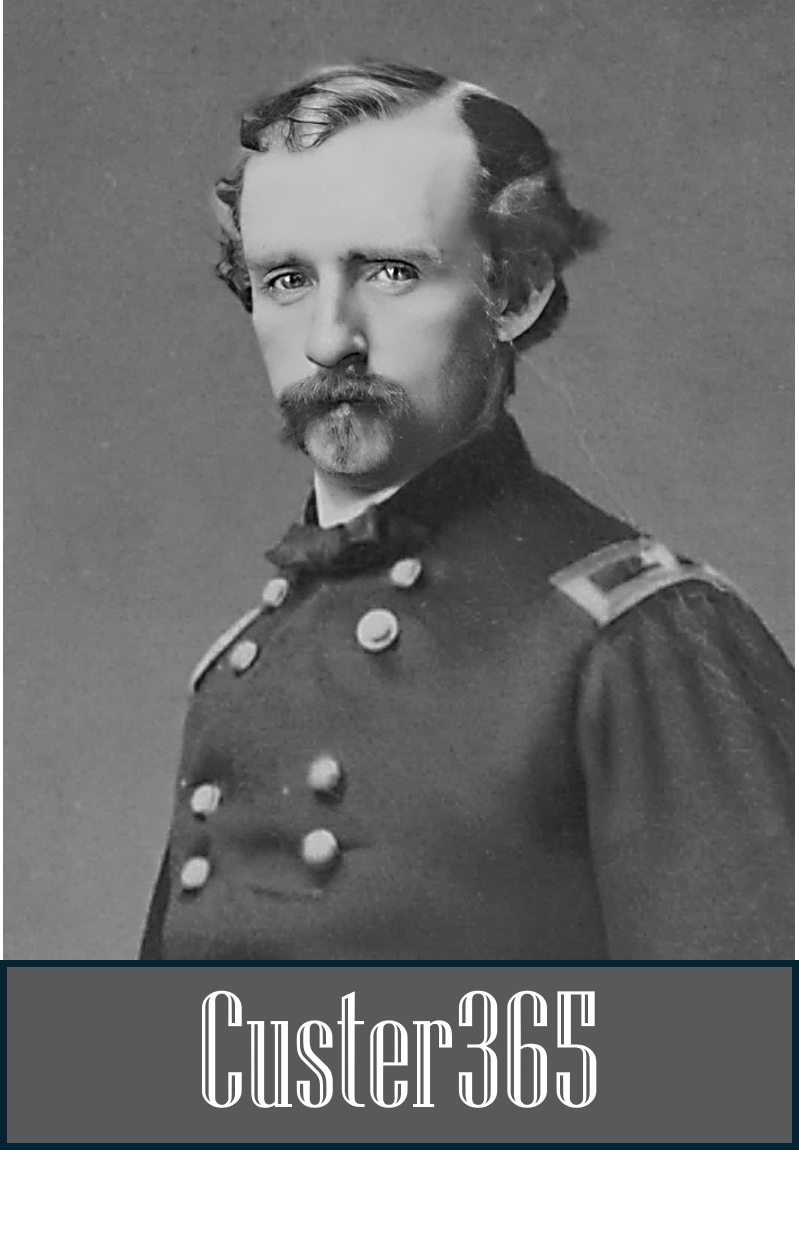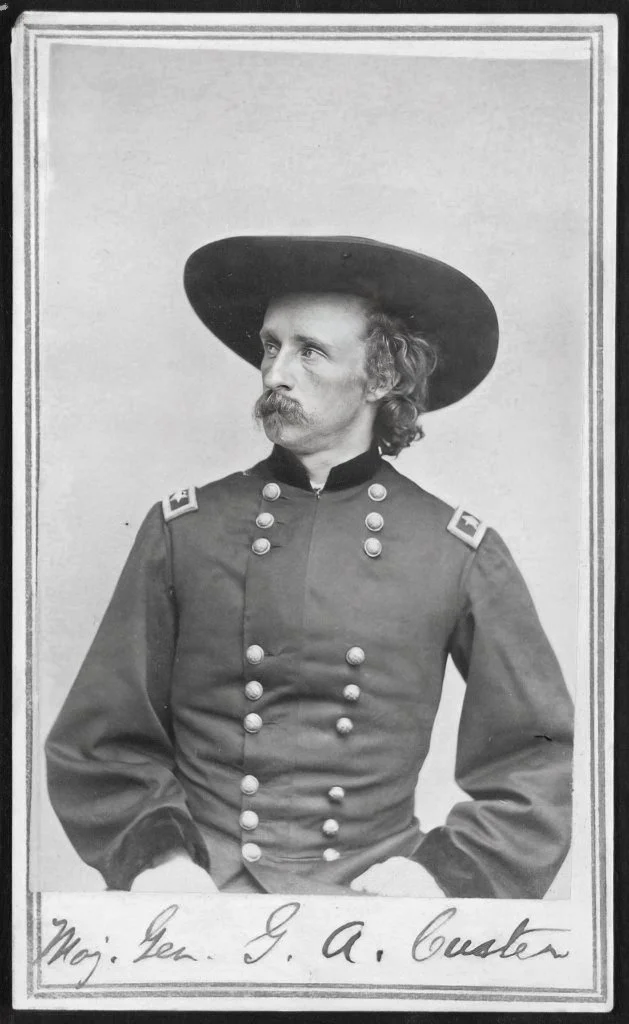AUG 24: Birth of an Adversary
On Aug. 24, 1834, Frederick William Benteen is born in Petersburg, Virginia. The Benteens had emigrated to America from Holland in the 18th century and settled in Baltimore. The family were prosperous music publishers, according to the U.S. Forest Service, and counted Stephen Foster among their clients.
Captain Frederick Benteen. (Credit: National Park Service)
The advent of the Civil War split the Benteen family, as Fred announced his decision to serve in the Union Army. His father, who remained loyal to the Confederacy, denounced his son and “expressed the wish that Fred be killed by the first bullet, preferably fired by a Benteen who remained loyal to the South,” according to the Forest Service. Undeterred by his father's sentiments, Fred accepted a commission as First Lieutenant in Bowen's Battalion on September 1, 1861. This unit later became the Tenth Missouri Volunteer Cavalry.
As is often the case in wartime, Benteen rose rapidly in rank, being promoted to Captain in October of 1861, Major of his regiment in December 1862, and Lieutenant Colonel of the regiment in February 1864.
He participated in a number of Civil War battles, including Wilson's Creek, Bolivar, Milliken's Bend, Pea Ridge, and Vicksburg, receiving accolades from his superior officers. He was promoted to Colonel, 138th United States Colored Infantry, on July 1, 1865.
In the reorganization of the US Army following the Civil War, he was appointed Captain, 7th United States Cavalry, on July 28, 1866.
And that’s when his relationship with George Armstrong Custer started.
During the Winter Campaign of 1868, Custer was in command of the 7th Cavalry as it struck a large village of Cheyenne camped along the Washita River in present-day Oklahoma on November 27. Benteen’s unit encountered intense fighting and Benteen reportedly killed a Cheyenne youth who fired on him.
During the successful attack, Major Joel Elliott and 17 of his men chased after fleeing Indians in an attempt to keep them from escaping. Elliott had not cleared the action with Custer. When Elliott and his men failed to return, a search party was sent out but they didn’t locate Elliott. Custer feared that an even larger contingent of nearby Cheyenne were headed his way, so he left Elliott and his men behind.
Two weeks later Custer and General Philip Sheridan were among a party that discovered the mutilated bodies of Elliott and his men two miles downstream from the battle.
Benteen, who served as Elliott’s commander during the Civil War, never forgave Custer for refusing to look for Elliott and his men. Later, a letter written by Benteen with a highly negative account of Custer’s actions at Washita was published anonymously by a prominent newspaper.
Custer called together a number of his officers and threatened to horsewhip the man who wrote that letter. According to author Nathaniel Philbrick in his book, “The Last Stand,” Benteen calmly checked his revolver then informed Custer he had written the letter. Custer’s reply, “Colonel Benteen, I’ll see you again!”
Benteen also, reportedly, was angered by Custer prior to the Battle of Little Bighorn, June 25-26, 1876, when he expected to be given command of troops and orders to attack massing Sioux and Cheyenne warriors. Instead, Benteen’s units were relegated to scouting to the left flank of Major Marcus Reno’s units and controlling pack mules carrying valuable ammunition packs for Custer and Reno’s troops.
During the battle, Benteen’s combat experience ultimately proved valuable to Reno and his men in holding off warriors for more than a day before the Indians gave up and exited the area.
On June 27, after General Alfred Terry, Custer’s superior officer, and troops from the Montana column arrived at the battlefield and discovered the bodies of Custer and 210 of his men, Benteen was informed of Custer’s death. Benteen blurted out, “I don’t believe it. He’s up on the Bighorn watering his horses.”
Benteen was detailed with his battalion to ride to the Custer battlefield and identify the dead. When he saw Custer’s body, he said, “There he is, God damn him, he will never fight any more.”
Benteen retired from the Army in 1888 and died in Atlanta on June 22, 1898. His final resting place was Arlington National Cemetery.
Maj. General George Armstrong Custer. (Credit: Library of Congress)



